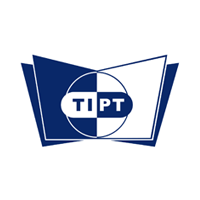
The research and development of any new medical product can be lengthy. Meticulous planning is needed to ensure that the product has sufficient benefits for consumers, without the potential for serious side effects.
As a result, while pharmaceutical companies are dedicated to improving the health of the general public, economic considerations often have to be taken into account. If it costs too much money to research and manufacture a new drug without the promise of a return on investment, then businesses are less likely to pursue the idea.
That’s why individual governments are taking it upon themselves to subsidize the costs of production for so-called ‘orphan drugs’ which are likely to only be needed by small segments of the population. Although less lucrative than other pharmaceutical products, orphan drug development ensures that people with rare diseases are provided with potentially lifesaving medication. Read on to learn more about orphan drugs and their place in the world of pharmaceutical development.
How Orphan Drugs are Designated
There are between 4,000-5,000 rare diseases around the world that affect a relatively small amount of the population for which there is no treatment currently available. Orphan drugs can be designated to treat such patients. The small market for such products reduces the possibility of profits, so incentives need to be offered for research and development.
During your pharmaceutical diploma, you may also come across products which have previously been withdrawn from the market that are now designated as orphan drugs. It may have been discovered that the treatment had economic or therapeutic drawbacks, but more recent research could have uncovered new beneficial properties.
Orphan drug designation is also offered on products which stem from research which can’t be patented, and because they relate to important but not creditworthy markets.
Canada is an Outlier Regarding the Development of an Orphan Drug Framework
The European Union, the USA, and much of the rest of the developed world have introduced frameworks for the development of orphan drugs. In the US, research and development of such treatments is incentivized through tax credits, access to federal grants and exclusive distribution rights in the country. ‘Priority Review’ vouchers are even handed out which fast-track the review process for certain medications in the future.

Canada is one of the few countries in the developed world which doesn’t currently have an orphan drugs framework. Plans have been outlined in recent years, but Health Canada removed references to a potential framework from their website at the end of last year. However, the organization did announce a new plan to review its drug regulatory process recently, which made special mention of improving access to orphan drugs.
Orphan Drug Success Stories Students in R&D Pharmaceutical Training Should Know About
Tremendous strides have been made in the treatment of cystic fibrosis, a genetic disorder which largely affects the lungs, through orphan drug development. Drugs created with the help of American orphan drug incentives provided a medical breakthrough, and patients now experience increased life expectancy and standards of living. Other success stories include treatments for high cholesterol and Wilson’s disease.

Among the US orphan drug approvals so far in 2018 are potential treatments for specific types of kidney disease, lung cancer, ovarian cancer, and leukemia. While a smaller corner of the sector, working in orphan drug research and development could be an exciting choice for graduates of pharmaceutical courses, offering the opportunity to develop treatments which save lives.
Want to play an important role in future medical breakthroughs?
Find out more about the R&D pharmaceutical training program at TIPT.
